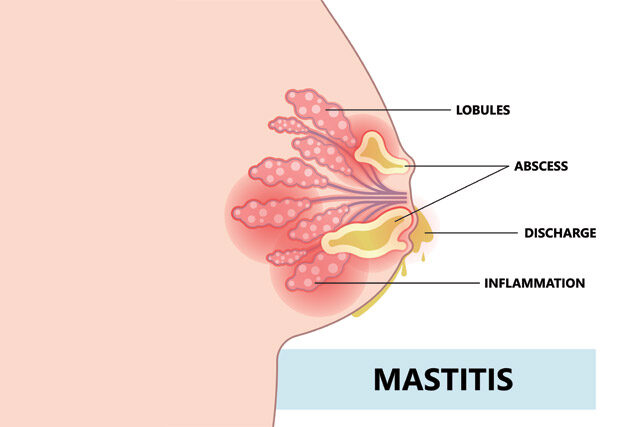Some people say that the breastfeeding period is the fourth trimester of pregnancy. This time is so special for creating a special bond between the mother and her baby. To make this period cloudless and pleasant for both parties, it’s essential that breastfeeding women receive the entire spectrum of vitamins and minerals that will support them physically and emotionally happy, as well as ensure the baby gets everything it needs for healthy growth and development. This is the reason your doctor may recommend taking postnatal vitamins during breastfeeding.
Reasons to Take Postnatal Vitamins
The postpartum period is full of uncertainty, especially for first-time moms. Striving to keep things natural, many prefer a nutritious diet to supplements. However, eating healthily is not enough to provide your infant with the entire spectrum of nutrients it needs. Therefore, proper supplementation is highly recommended.
While some OBGYNs see no difference between prenatal and postnatal vitamins, saying you can take either of them, others still insist on the postnatal supplement for breastfeeding mothers. The reason is the latter have been created specifically to support the female body, which goes through a hard period of recovery and still needs to produce enough breast milk to satisfy the needs of the growing baby.
During pregnancy, the female body exhausts from a lot of nutrients, including:
- Vitamin B12;
- Iron;
- Docosahexaenoic acid (DHA), which is a type of omega-3 fatty acid;
- Calcium;
- Selenium;
- Folate, and others.
Besides, breastfeeding requires increased nutrient supply as it partially goes for milk supply. Restoring the depleted amount of supplements with a diet only is very difficult, making supplementation the best option.
Aside from multiple benefits for the mother, the intake of postnatal vitamins also works well for the new baby, especially if you are exclusively breastfeeding, as the American Academy of Pediatrics recommends. Wholesome nutrition allows healthy brain development and works positively for all the other organs and systems of the growing baby’s organism.
Vitamins and Minerals to Supplement
The nutritional requirements for breastfeeding mothers are significantly different from those for pregnant individuals. In some instances, the demand is almost twice higher.
Vitamin A
Lactating women should consume 1300mcg of vitamin A daily. Such a high dose is explained by the high amounts of it being secreted into breast milk. This vitamin is essential for the proper development of your baby’s immune system and vision.
Iron Supplement
The labor and postpartum period is associated with certain blood loss, which is the reason iron deficiency anemia is rather common in new mothers. To recover and bring your iron stores to the pre-delivery levels, it’s essential to take at least 9 mg of iron daily.
Vitamin E
Another nutrient that is secreted into breast milk is vitamin E. Women in postpartum have a higher demand for this supplement than during pregnancy. On average, the daily consumption of Vitamin E should be around 19 mg.
Calcium
One of the essentials of a healthy and happy breastfeeding mother and her baby is sufficient consumption of calcium. The recommended daily dose of this supplement is 1000 mg. It is believed to be enough to preserve the strength of your teeth and bones, which suffer a lot during pregnancy.
Vitamin C
Vitamin C is good not only for your immunity. It also plays an essential role in the production of collagen. The latter is in high demand after delivery as it speeds up wound healing and the recovery period. Due to this vitamin being secreted into breast milk, its recommended doses for postpartum are higher than during pregnancy and should reach 120 mg per day.
Vitamin D
Vitamin D supplementation is important for both the mother and the baby. The amounts of vitamin D infants get with breast milk is not enough to cover their needs. The American Pregnancy Association recommends supplementing babies with 400 UI of vitamin D per day on condition they are exclusively or partially breastfed. As for the mothers, the consumption of vitamin D from food cannot satisfy their daily need for this nutrient, which is 600 IU per day.
Iodine
The development of the baby’s brain is impossible without the proper function of its thyroid gland. The health of the latter largely depends on the amount of iodine the baby gets from the breast milk. During lactation, the demand for iodine in mothers is higher than during pregnancy and makes 290 mcg compared to 220 mcg.
How to Choose the Best Postnatal Vitamins?
With a variety of prenatal vitamins on the market, the selection of postnatal supplements is not that diverse. Below you’ll find some advice to help you make the best choice and buy the right supplements.
- Opt for the vitamins recommended by US healthcare organizations and are trusted by healthcare providers.
- It’s better to pick vitamin complexes to receive maximum vitamins and minerals from a single pill. It’s essential that the supplement you choose contain Vitamins A, B1, B2, B6, B12, C, E, and D, as well as iron, selenium, iodine, calcium, and other nutrients.
- There’s a little chance that you can find the supplement containing everything you need, so you may need to take more than one supplementary pill daily.
- It’s essential that your supplementary dietary complex includes docosahexaenoic acid and eicosapentaenoic acid.
Please, check with your doctor before taking any nutritional supplements.
Bottom Line
The health of a new mother is as important as the health of her baby. So while keeping an eye on your newborn’s well-being, you shouldn’t forget about yourself. Delivery, postpartum, and breastfeeding periods are exhausting for the female body, so you should do your best to support a healthy supply of vitamins, minerals, and nutrients.
Healthy diets, spending time in the fresh air, and physical activity are crucial for a fast recovery. However, they are not enough to support the organism to the extent it needs. Postnatal vitamins while breastfeeding can become a great support for your health while ensuring your precious baby gets the best of the breast milk you produce.




